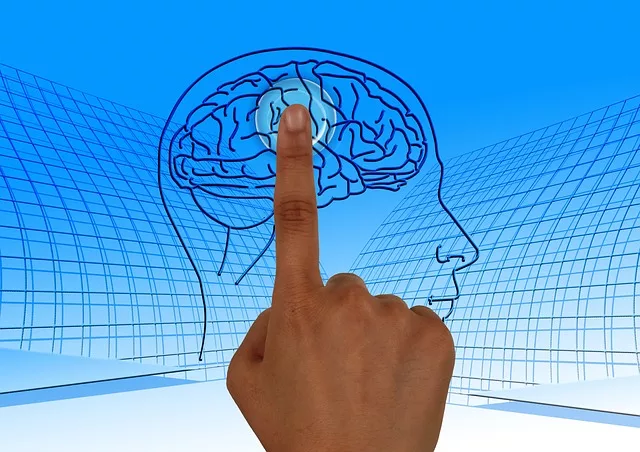En seconde partie de sa présentation lors du symposium « La persévérance scolaire – Ce que la neuroscience peut nous enseigner », organisé par l’Association canadienne d’éducation (ACE) », le Dr Steve Masson a énoncé des principes neurologiques aux réelles retombées positives en éducation.
Après avoir secoué les conceptions et défait les neuromythes en éducation (voir notre article d’hier), Steve Masson a énuméré des principes pédagogiques en lien avec le fonctionnement du cerveau qui, pour leur part, sont effectivement soutenus par la science.
Activer ses neurones de façon régulière
Le premier se nomme « l’activation neuronale répétée ». « Lorsqu’on apprend, le cerveau change », résume le chercheur, en faisant référence à la plasticité du cerveau. Il illustre le tout avec l’analogie de la forêt. « Si on emprunte souvent le même sentier dans la forêt, un chemin se développe et on y circule plus facilement. C’est un peu la même chose avec les neurones dans le cerveau : si on active plus souvent certaines connexions, on fait en sorte que l’information y circule plus facilement. » Au contraire, rappelle-t-il aussi, si on cesse d’emprunter un chemin en forêt, la végétation reprend le dessus, d’où l’importance d’y revenir régulièrement.
En pédagogie, ceci se traduit par l’importance de ramener régulièrement des connaissances antérieures afin de faciliter leur récupération en mémoire. Comment y parvenir concrètement? En « testant » plus souvent les élèves, suggère le Dr Masson. Par « test », il n’entend pas que les évaluations notées et les examens, mais bien tout ce qui active le cerveau : questionner, faire des exercices, demander aux élèves d’enseigner des contenus à leurs pairs, bref, plusieurs éléments relevant de la pédagogie active. Il souligne aussi les bienfaits de montrer aux élèves comment étudier : relire ses notes et souligner les passages jugés importants aurait un impact plus faible que de se faire questionner par ses parents ou ses amis, ou encore de cacher certains passages de ses notes et d’essayer de se les remémorer.
Étudier plus souvent, moins longtemps
Le deuxième principe évoqué par le Dr Masson est « l’effet d’espacement ». Ce serait l’un des principes les plus solidement soutenus par la science, même si peu connu en éducation. Il consiste à diminuer la longueur des périodes consacrées à l’apprentissage ou l’étude d’un concept au profit de leur répétition. Autrement dit, vaut mieux travailler quatre périodes de 30 minutes dans une semaine qu’une période de deux heures consécutives sur une même notion. Ceci permet non seulement d’apprendre plus, mais d’oublier moins rapidement. L’effet est encore plus bénéfique si on augmente l’espacement après la deuxième période de travail (les première et deuxième sont plus rapprochées). Dès qu’on arrête la régularité, l’oubli commence. Règle générale, on compterait environ 10 à 20 % d’espacement par rapport à la durée de rétention optimale souhaitée. Par exemple, si un examen a lieu dans deux semaines, on espace chaque période de révision de 1,5 à 2,5 jours, environ.
Dans l’application de ce principe, le sommeil joue un rôle positif pour la consolidation des apprentissages. En effet, lorsqu’on dort, certains réseaux neuronaux se réactivent spontanément, entretenant ainsi le « chemin » de circulation de l’information.
D’autres principes validés
Enfin, le Dr Steve Masson a énuméré d’autres principes soutenus par la recherche, comme :
- l’importance de bien structurer et organiser l’information présentée aux élèves, puisque ceux-ci sont souvent en surcharge cognitive;
- parler aux élèves du fonctionnement de leur cerveau serait bénéfique, notamment pour éliminer les conceptions du style « je ne suis pas capable de faire cela »;
- enseigner l’écriture manuscrite (apprendre à écrire avec un crayon plutôt qu’avec un clavier favoriserait l’apprentissage de la lecture);
- utiliser l’approche graphophonétique de la lecture.
Et maintenant, on fait quoi?
En conclusion, pour favoriser la réussite scolaire, Steve Masson recommande :
- d’abandonner les neuromythes;
- d’adapter l’enseignement au fonctionnement du cerveau;
- de s’appuyer sur des données de recherche publiées dans des revues réellement scientifiques.
Ressources et références
Pour revivre certains moments du symposium, consultez le mot-clic « #neurosymposium » sur Twitter. On peut aussi lire le dossier « Mieux connaître le cerveau peut-il nous aider à mieux enseigner?» publié par Steve Masson dans la revue de l’Association canadienne d’éducation.
Enfin, voici les images utilisées par le chercheur lors de sa présentation.
Voici les images présentées lors de la conférence de Steve Masson organisée par l'Association canadienne d'éducation le…
Publié par Laboratoire de recherche en neuroéducation sur 6 novembre 2015






